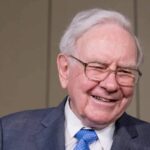As the effects of President Donald Trump’s controversial trade tariffs ripple through the economy, the likelihood of a United States recession is rising sharply.
Specifically, the probability of a recession in 2025 has jumped to 62%, an increase of nearly 21 percentage points in just one week, according to data retrieved by Finbold from betting market platform Kalshi.
In the early hours of April 5, the figure briefly spiked to nearly 65%, the highest level in the past year. For context, recession odds were as low as 17% at the start of 2025.
This momentum has been primarily driven by growing concerns over President Trump’s recently imposed tariffs to reduce the U.S.’s largest trade deficits. The move has triggered a global backlash and heightened fears of a trade war, particularly with countries such as China and members of the European Union.
The immediate impact has been a sharp decline in global financial markets. For instance, on April 4, the Dow fell 5.5%, the S&P 500 lost 6%, and the Nasdaq dropped 5.8%, the worst single-day losses since the pandemic era. Amid this downturn, estimates indicate that the U.S. stock market has lost $11 trillion in value since February 19.
Wall Street take on recession
Wall Street is also beginning to echo warnings of a potential recession. For instance, banking giant JPMorgan became the first major Wall Street entity to officially forecast a U.S. recession in 2025, citing the impact of the new tariffs.
According to the bank’s chief economist, Michael Feroli, the possible recession will be characterized by higher inflation, slower growth, and rising unemployment. The institution revised its recession odds, setting the figure at 60%.
On the other hand, Moody’s Analytics chief economist Mark Zandi believes Trump’s tariffs will likely trigger an imminent recession. Zandi foresees a sharp two-point drop in economic growth and a spike in unemployment to 7.5% by next year.
Meanwhile, Deutsche Bank economists have also sounded the alarm, stating that Trump’s tariffs could cut U.S. economic growth in 2025 while pushing core inflation higher. The bank added that recession risks will “rise materially” if the tariffs remain in place.
“These actions could potentially shave 1 – 1.5 [percentage points] from growth this year and add a broadly similar amount to core PCE inflation. <…> Recession risks will likely rise materially if these tariffs are sustained,” the bank said.
This comes when Federal Reserve Chair Jerome Powell has also raised concerns, cautioning that the tariffs could lead to slower growth and higher inflation than anticipated.
As reported by Finbold, the recession concerns are also affecting the global economy, with escalating trade tensions contributing to the downturn, according to Nigel Green, CEO of global financial advisory giant deVere Group.
Featured image via Shutterstock








